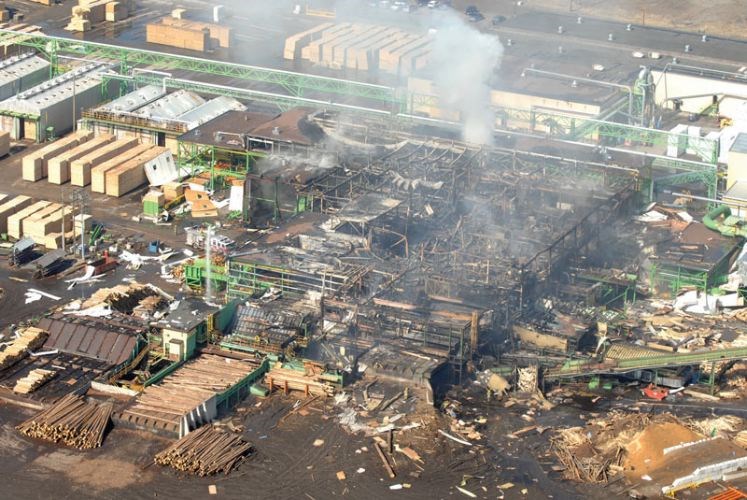WorkSafeBC declined Lakeland Mills' findings into the fatal explosion because the agency had decided to pursue charges against the sawmill's owner, a coroner's inquest heard Monday.
"For us to sit down with an employer who could be in jeopardy and ask them to share that information with us would have been inappropriate," WorkSafeBC investigations director Jeff Dolan testified.
Two employees - Glen Roche and Alan Little - died from injuries suffered in the April 23, 2012 blast that also left more than 20 others with injuries, many serious.
The inquest resumed Monday at the Prince George courthouse after a more-than month long hiatus.
It was halted in late March when coroner's counsel John Orr learned there was new information, namely an investigation conducted on behalf of Lakeland into the explosion.
Orr asked for the break to give him time to look through the material.
Dolan said an employer is required under the Workers Compensation Act to provide its findings to WorkSafeBC within a certain time.
However, due to the complexity and magnitude of the investigation, Dolan said Lakeland was given an extension and four days later, on Nov. 21, 2012, WorkSafeBC's decided to take its findings to Crown counsel.
Once the decision to go to Crown counsel was made, Dolan said it was no longer necessary for the findings from Lakeland's investigation to be submitted to WorkSafeBC.
"We were no longer in a position to compel because we had made the decision to prosecute," Dolan said.
WorkSafe recommended four charges under provincial safety law, but no criminal-negligence charges.
Crown counsel eventually decided against pursuing charges, in part because no warrants were issued rendering some evidence inadmissible in court, although it was also noted the mill owners would likely have had a good argument for due diligence.
A Seattle-based forensic engineering firm, CASE Forensics, was hired by Lakeland to do its investigation. A CASE Forensics representative is scheduled to testify on Tuesday afternoon.
Dolan said WorkSafeBC has since adopted a new process for investigating major incidents. Instead of waiting for all the evidence to be gathered before reaching a conclusion, Dolan said the direction of the investigation is determined as it progresses.
"The evidence will dictate where you're going," Dolan said.
WorkSafeBC's response to the Babine Forest Products explosion three months before the Lakeland blast was also a topic.
Because of safety concerns and the frozen water still on the site from the effort to put out the subsequent fire, Dolan said investigators were unable to get onto that scene until Feb. 9, 2012.
In earlier testimony, WorkSafeBC had been criticized for failing to give sawmills a better idea of what caused the Babine blast in the weeks that followed.
Dolan said he attended a meeting of an advisory group for wood manufacturers in the month following the explosion and that WorkSafeBC told industry representatives the fuel source had been narrowed down to two possibilities - wood dust and natural gas.
"What was communicated to those present, and I suspect in other arenas, was that as an employer, you're responsible for the safety associated with either of those sources," Dolan said.
Dolan called the investigations into the Babine and Lakeland explosions the largest in WorkSafeBC's history.
There were also two deaths and more than 20 injuries in the Babine incident. A coroners inquest into that explosion is scheduled to begin July 13 in Burns Lake.



